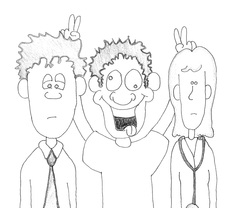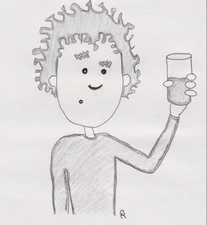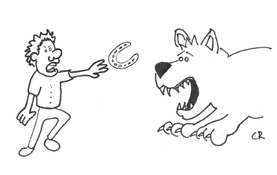
A few months ago, my son and his girlfriend invited me to go bowling. I hadn’t been in a bowling alley for several decades, and even then I wasn’t any good. My response was to panic. I’d look stupid and clumsy. I’d throw my back out.
“Oh come on, Mom. The ball doesn’t weigh any more than our cat, and if you hate it you can watch.”
Out of excuses, I went. My fears were unfounded. No one noticed me, much less laughed at my attempts. The ball was more manageable than Felicity, my flighty feline. After a ton of gutter balls, I had burned 175 calories and discovered some new muscle groups, the most important ones being in my face. I haven’t laughed that hard in a long time.
Endorphins, the feel-good hormones, reward us when we do what our body is designed to do, MOVE. We are hardwired as humans to seek pleasure and avoid pain. I think other wires are also hooked to our psych, the obsess and avoid ones.
When you were a teenager and your parents said you couldn’t do something, didn’t that suddenly became the most intriguing thing on your to-do list? Most of us haven’t changed. “When I even think about starting a diet,” a friend told me, “I can’t stop eating.”
I understand. A few months ago, my doctor scheduled me for a test, which required dietary restrictions. For some chocolate is an Essential Food Group. This is not true for me, or at least it wasn’t. However, the night before the test I received a gift, a large piece of chocolate. Chocolate has caffeine, and on the list of don’t-even-think-about-it items were foods containing the lovely stimulant. I brought the chocolate bar home, hid it and tried not to think about it.
The day after the test was completed, I was on a mission. Devour that chocolate bar. The taste was amazing! Interestingly, once the thing was consumed and the restriction gone, so was my uncharacteristic focus.
When we tell ourselves we can’t do something, the thing we have eliminated becomes a painful pre-occupation.
Recently another friend reported that she had read something that motivated her to try to decrease her calorie intake by 30%. She awakened one morning with this daunting task as her goal. By noon her sense of deprivation had reached epic proportions. She too couldn’t stop eating.
Similarly, when we tell ourselves we have to do something everyday, we soon avoid the activity. Few people succeed with the change-your-body-in-few-short-weeks exercise program, but the concept plays into our need for silver bullets and quick fixes. Small things you begin today will yield abundant changes months from now.
“Motivation follows action; it does not precede it,” says Rita Milios, LCSW in her article, Demystifying Motivation in Diabetes Self-Management, March/ April 2010. Milios suggests we break our goals into small steps. If we resist those, she asks us to consider breaking them down even further. At some point we’ll find something we’re willing to do. Our willingness to do small things consistently is the truest measure of your potential to reach a goal, she says.
Though it would be good to get 150-300 minutes of exercise each week, 5-10 minutes a day is a positive step. Five pats on the back burn more calories than ten minutes of beating yourself up. The more you follow through with your commitments, the more positively charged your emotionally energy becomes, and the more motivated you’ll be to stick with it.
Habits start with action, not endless planning. If you are still resisting, I suggest you take this small step, plan to be spontaneous tomorrow.


 RSS Feed
RSS Feed
